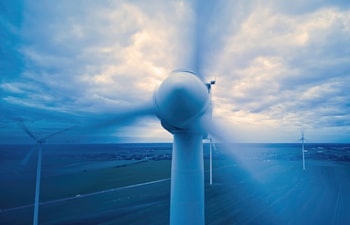The global e-fuels market was worth $6.2bn in 2023 and is projected to grow at a CAGR of more than 32% in the period from 2024-2032, according to a new report.
The study from Global Market Insights (GMI) cited increasing environmental concerns, stringent regulations on carbon emissions, and advances in renewable energy technologies as driving growth over the next eight years.
Published this month (April 2024) with a base year of 2023, it points to the ‘significant potential’ that e-fuels have to address the limitation of battery electric vehicles (BEVs) and hydrogen fuel cells by offering a convenient and efficient energy storage solution.
The report covers e-fuel market trends, future forecasts and industry news, and singles out projects such as Infinium’s Project Roadrunner, which attracted a $75m investment from Bill Gates in December 2023, and the Series B funding raise for clean fuels start-up INERATEC in January 2024 as particularly prominent.
It lists Ballard Power Systems, Inc., Climeworks AG, ExxonMobil, HIF Global, and Norsk e-Fuel AS as ‘dominant’ players in the market, boasting a robust global presence and diverse product offerings.
E-fuel market trends
The report highlights several facets driving the e-fuels market forward.
On a technological level it speaks to the ongoing advancements in electrolysis, catalysis, and synthetic biology as enhancing the efficiency and scalability of e-fuel production processes. These technological innovations are driving down production costs and improving the overall viability of e-fuels as a mainstream energy solution.
In terms of an enabling environment, the report reflects upon the fact that governments, along with major operating players, worldwide are implementing supportive policies and incentives to promote the adoption of e-fuels and stimulate investment in related infrastructure. Moreover, subsidies, tax credits, and regulatory mandates are incentivising both producers and consumers to transition towards sustainable fuel alternatives complementing the industry outlook.
Projections
Viewed from a specific product perspective, the ethanol e-fuel segment is expected to exceed $18bn by 2032, according to GMI.
Ongoing advancements in ethanol production technologies, including enzymatic hydrolysis, fermentation optimisation, and membrane separation, are enhancing the efficiency and sustainability of ethanol e-fuel production.

In terms of applications, the report forecasts the aviation industry to grow at a CAGR of over 33% through to 2032. Regulatory frameworks mandating the use of sustainable aviation fuels (SAFs) and incentivising the adoption of e-fuels are driving market growth.
Initiatives such as carbon offsetting schemes, emission reduction targets, and blending mandates create a favourable market environment for e-fuel producers and users.
The report highlights Europe as an e-fuels market in strong growth mode, projected to cross over $45bn by 2032 – spurred on by innovation and an increasing level of investment and funding support.




